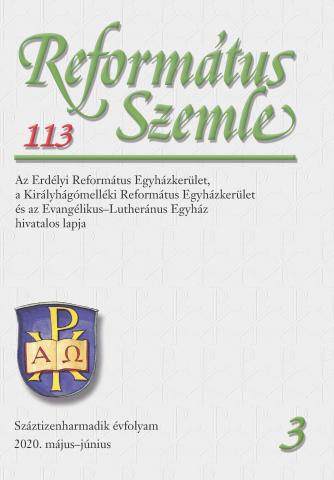Eduard Böhl (1836–1903) bécsi dogmatikus eszkatológiai gondolkodása
The Eschatological Thinking of Eduard Böhl (1836–1903), a Systematic Theologian from Vienna
Author(s): Zoltán JuhászSubject(s): 19th Century, Pre-WW I & WW I (1900 -1919), Systematic Theology, Eastern Orthodoxy, Other Christian Denominations, Sociology of Religion, History of Religion
Published by: Erdélyi Református Egyházkerület
Keywords: Eduard Böhl; Gábor Szeremlei; H. F. Kohlbrügge; reformed dogmatics; eschatology; nineteenth century theology; liberalism; neo-calvinism; resurrection; the second coming of Christ; the final judgement;
Summary/Abstract: Eduard Böhl (1836–1903), a scholar of the second half of the nineteenth century, was professor of dogmatics at the Protestant Theological Faculty in Vienna for 35 years. His lifework was his “Dogmatics”, which he wrote for 23 years. In this unfairly forgotten work, he formulates cardinal Reformed beliefs providing the reader with accurate guidance regarding theology, anthropology, soterology, and eschatology. This study analyses Böhl’s teaching based on the last major chapter of his book, concerned with the “End of Times”. In order to gain a better understanding of the theological issues discussed by Böhl, this work parallels Gábor Szeremlei’s chapter on “Eschatology” which can be found in his book of Dogmatics entitled “Christian Religious Science”. A study of this issue provides insights into what theologians of the nineteenth century formulated in relation to this question, and how biblical approaches and ideas emerged within the debates of orthodox and liberal theology.
Journal: Református Szemle
- Issue Year: 113/2020
- Issue No: 3
- Page Range: 242-265
- Page Count: 24
- Language: Hungarian

